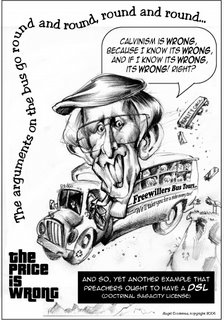It is uncommon in today's world to find examples of people loving one another. This is no surprise and really should not be expected among nonbelievers. But it is often lacking among Christians. In fact, quite often it looks as though nonbelievers treat each other with greater respect and deference than Christians treat other Christian brothers.
This should not be! Not only should brotherly love be expected among those in the faith community—it is commanded.
1 John 4:7, 11-12, 20-21
Beloved, let us love one another, for love is from God, and whoever loves has been born of God and knows God. Beloved, if God so loved us, we also ought to love one another. No one has ever seen God; if we love one another, God abides in us and his love is perfected in us. If anyone says, "I love God," and hates his brother, he is a liar; for he who does not love his brother whom he has seen cannot love God whom he has not seen. And this commandment we have from him: whoever loves God must also love his brother.
Christian love is evident and even obvious among a group of Christians my wife and I met in Lynchburg, Virginia. Allow me to tell you just one example that occurred this past weekend—Memorial Day weekend:
A medical issue has compelled us to travel to Lynchburg, Virginia, every weekend for the past four months. This will continue indefinitely. We have to be In Lynchburg at 2:00 on Sunday afternoons, which makes it difficult to attend church at home since Lynchburg is a 3.5 hour drive from our house and our home church is 45 minutes away from our home in the opposite direction.
We immediatley saw the need to join up with a church that we could attend there in Lynchburg so we wouldn't have to miss gathering with other believers every Sunday. I researched Lynchburg area churches, looking specifically for solid biblical doctrine and expositional preaching. I came up with a list of three churches in the area that we wanted to visit to see where God would direct us for corporate worship.
God led us the first week to Old Forest Road Baptist Church. The preaching was great. The singing was energetic and passionate. The location was convenient to the hospital. But the thing that really stood out right from the first person we met was the almost visceral spirit of Christian love that eminates from the people of this church. We were warmly welcomed. Over the next few weeks as they got to know us and our situation, they quickly showed ongoing concern for our wellbeing. They prayed for us. They invited us out to dinner. Many of them even opened their homes to us for an overnight stay should we need to get some rest the night before or after our weekly visit to Lynchburg.
This past weekend the church had a Memorial Day picnic (actually the day before Memorial Day, since the picnic was after the evening service on Sunday). I lost my keys during the picnic. There were five or six families cleaning up the picnic area behind the church when we began searching the grounds for the keys. When they found out what we were doing, every single one of them began to help look for the keys. They fanned out across the large picnic and parking lot area and began walking back and forth and searching (even though it was beginning to get dark). Not one of those people left to go home for the next 45 minutes or so. By the time we found the keys, it was completely dark and only one person had a flashlight. But they had all continued searching even in the darkness. They were checking the grassy areas with their hands and feet to see if they could feel or hear the keys, since it would be difficult in those conditions to see them.
After the keys were found, they all gathered around to wish us a good, safe trip home. One couple offered repeatedly for us to stay for the night at their home so we could get on the road refreshed in the morning. We declined the invitation, wanting to avoid the Memorial Day traffic that we expected the next day. So after a few minutes of well-wishing, we all headed out—them to their homes in the Lynchburg area, and us to our home in the Washington, D.C., area—almost 200 miles away.
We had a wonderful trip home, talking almost the entire time about how wonderful these people are. I have never seen such natural display of love ... and they do it continually with everyone. Not just to us, and not just every now and then.
So impressed have we been with these people and God's work among them, we are now seeking God's guidance toward moving us to the Lynchburg area permanently. We can't imagine how painful it would be to have to separate from this group of believers in Jesus Christ. Believers who show their faith in action ... by loving one another.
If you live in the Lynchburg area, or if you live quite a distance away, you need to visit this phenomenal church. It's worth the commute—even if, like us, you live 3.5 hours away.
Praise God for the affect his Holy Spirit has on those who obey and worship him!








 Looniness abound on the airwaves of the US media. Rosie O'Donnell displayed some of it on the September 12th episode of her talkshow The View. You have to
Looniness abound on the airwaves of the US media. Rosie O'Donnell displayed some of it on the September 12th episode of her talkshow The View. You have to 






